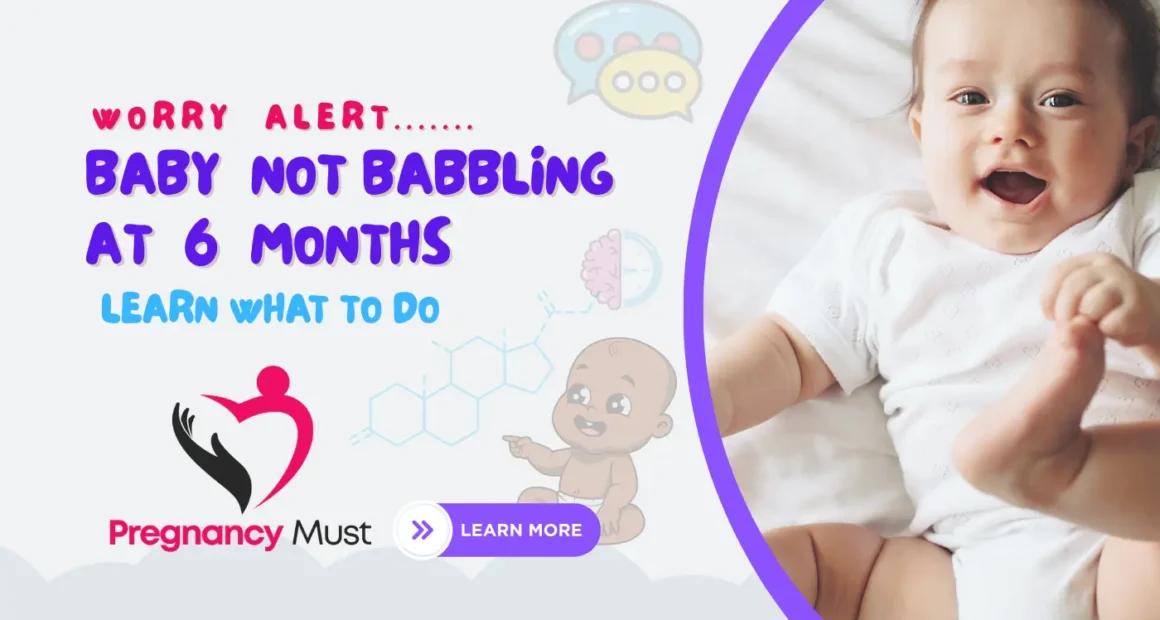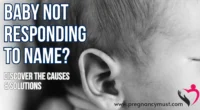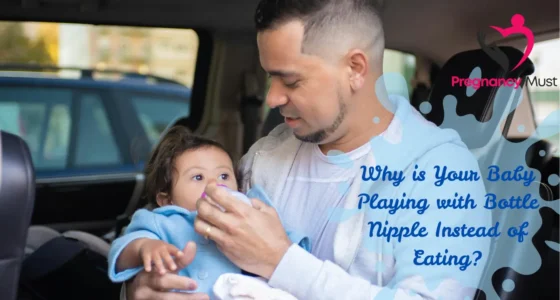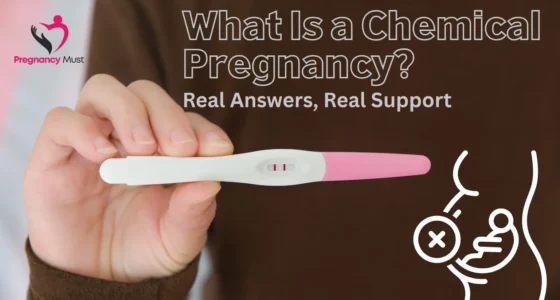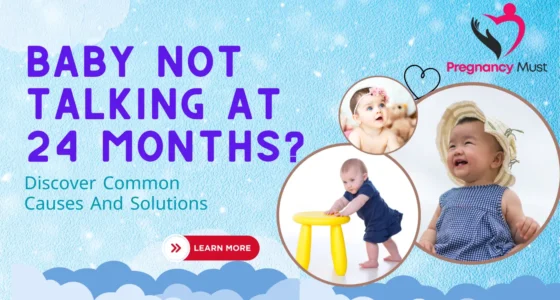It’s very normal to be worried if your baby not babbling at 6 months. Especially, it is a matter of alarming concern when other babies around the same age seem more vocal. Some differences in development are very usual. Babbling is often a significant communication milestone that shouldn’t be overlooked. Let’s explore what this might mean, what signs to watch for, and how you can help.
Table of Contents
Understanding Typical Babbling Milestones
When Do Babies Start Babbling?
Old or new, every parent gets confused with their baby’s behavior in the developmental stage. “When do babies start babbling?”- parents often have this question. Mostly babies start to babble around 4-6 months old. Babies make sounds like “ba”, “ma” or “ga” which show that your baby is starting to experiment with their voice.
What If They Don’t Babble?
Parents should be extra alert about the developmental progress of their babies. If a 6 month old not making sounds, it could be an indication of a developmental delay, especially if paired with other signs like lack of eye contact or minimal social engagement. Every baby develops at their own pace. Still, this age range is important for detecting early signs of speech delay in babies.
Normal Communication Development at 6 Months
some common developmental signs at this age are:
- Responds to sounds by making noises
- Starts to use voice to express joy or discomfort
- Start sounding consonant sounds like “b” or “m”
- Makes eye contact during interaction
If your baby not babbling at 6 months, consider observing their overall interaction and responsiveness to help identify potential concerns.
Why a Baby Not Babbling at 6 Months Might Need Evaluation
6 Month Old Not Making Sounds — Possible Causes
There are several possible reasons a 6 month old not making sounds, and not all are causes for alarm. Yet, identifying the issue early is always beneficial. Here are a few common causes:
- Hearing Issues
Babies learn to talk by listening. Hearing loss, even mild, can impact speech development.
- Lack of Verbal Interaction
Babies need lots of interaction and verbal input. A quiet environment can sometimes delay vocal development.
- Premature Birth
If your child was born prematurely, they may reach milestones later than full-term babies.
- Neurological or Developmental Disorders
Conditions such as autism spectrum disorder or developmental delays can be linked to baby speech delay signs.
Spotting Early Signs of Speech Delay in Babies
Recognizing early signs of speech delay in babies can help you act sooner. In addition to a lack of babbling, watch for:
- No laughing or squealing
- No response to their name
- Little to no use of gestures (e.g., waving, pointing)
- Hardly make eye or lack of interest in faces
These signs don’t confirm a speech delay on their own, but they’re worth monitoring, especially if your baby not babbling at 6 months.
How You Can Help Encourage Babbling
If your baby not babbling at 6 months, there are several supportive steps you can take to stimulate language development at home:
- Talk Often
Describe what you’re doing, name objects, and speak directly to your baby. The more your baby hears, the more your baby learns.
- Use Repetitive Words and Sounds
Simple, repeated words like “mama,” “dada,” and “bye-bye” can help reinforce speech patterns.
- Read Daily
Reading short, picture-heavy books builds vocabulary and keeps babies engaged with language.
- Sing Nursery Rhymes
Singing with gestures adds rhythm and movement, which helps babies process language and sound.
- Encourage Turn-Taking
Pause after speaking and watch for your baby’s response, even if it’s just a coo or smile. This builds conversational habits.
When Should You Talk to a Pediatrician?
If the baby not babbling at 6 months and has no vocal progress by 7 to 8 months, you need to consult the pediatrician. They may suggest a hearing test or referral to a speech-language pathologist for early intervention.
You should also speak to a professional if multiple baby speech delay signs are present—especially if your child seems disengaged or unresponsive to sounds.
The Power of Early Action
Don’t Ignore It If Your Baby Not Babbling at 6 Months
While it’s true that all babies develop on their timeline, ignoring early warning signs can lead to missed opportunities for helpful intervention. If your baby not babbling at 6 months, your awareness and response can make a significant difference.
Early support can improve speech, cognitive, and social development. So, trust your instincts and don’t hesitate to seek help. It’s not about rushing development—it’s about nurturing it with the right support, at the right time.
Conclusion
Your baby’s first babble to your ear is so precious experience. If that moment hasn’t come in six months, don’t panic—but don’t wait, either. Whether it’s adjusting your daily interactions or seeking professional guidance, you have the power to support your baby’s journey toward communication. Remember: your child’s voice is just waiting to be heard. Explore our Q&A for helpful tips and essential guidance.
